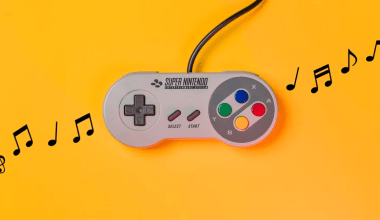When you think of music, the sound of guitars often comes to mind. But did you know there are two main types of guitars that shape the songs you love? Yes, we’re talking about the bass guitar and the electric guitar. (bass guitar vs electric guitar)They may look similar at first glance, but they are quite different.
Whether you’re a budding musician, a music enthusiast, or simply curious, understanding the difference between these two instruments is essential. In this blog, we’ll dive into what makes the bass guitar and the electric guitar special, their roles in music, and how to decide which one is right for you.
Chapter 1: What is a Bass Guitar?
The bass guitar is like the heartbeat of a song. It gives the music its depth and power. Think about a song you love. Can you feel the thumping rhythm? That’s often the bass guitar working its magic.
What Makes a Bass Guitar Special?
- Strings: Most bass guitars have four strings (sometimes five or six), tuned to low notes (E-A-D-G).
- Sound: Deep and low, like a steady rumble that holds everything together.
- Purpose: Works with the drums to create rhythm and groove.
Imagine the bass guitar as the glue that sticks all parts of a song together. It’s not flashy, but without it, the music would feel empty.
Chapter 2: What is an Electric Guitar?
If the bass guitar is the heartbeat, the electric guitar is the voice. It sings the melody and gives a song its personality. The electric guitar can do so many things—play soft, soothing tunes or rock out with powerful riffs and solos.
What Makes an Electric Guitar Special?
- Strings: It has six strings, tuned to higher notes (E-A-D-G-B-E).
- Sound: Bright, sharp, and versatile.
- Purpose: Plays melodies, riffs, and solos that make a song stand out.
The electric guitar is perfect if you want to be in the spotlight. It’s the star of many genres like rock, pop, and blues.
Chapter 3: How Are They Built?
The bass guitar and electric guitar may look similar, but their design has some key differences.
1. Size and Weight
- The bass guitar is bigger and heavier. It needs to be sturdy to handle low notes.
- The electric guitar is smaller and lighter, making it easier to play.
2. Neck and Frets
- A bass guitar has a longer neck and fewer frets. This helps create those deep, resonant sounds.
- An electric guitar has a shorter neck and more frets, perfect for intricate melodies.
3. Strings
- Bass guitar strings are thicker and spaced further apart.
- Electric guitar strings are thinner and closer together.
These differences make each instrument better suited for its role in music.
Chapter 4: How Do They Sound?
The sound of a bass guitar is like a warm hug—it’s rich, deep, and supportive. On the other hand, the electric guitar is more expressive. It can scream, whisper, or even cry, depending on how you play it.
In Action:
- In a band, the bass works with the drums to create the groove. It’s what makes people tap their feet or dance.
- The electric guitar takes the lead, playing catchy riffs or emotional solos that people remember.
Chapter 5: How Are They Played?
Playing a bass guitar and an electric guitar feels different.
Bass Guitar Techniques:
- Fingerstyle: Plucking the strings with your fingers.
- Slap and Pop: A funky technique where you slap the strings with your thumb.
- Pick Style: Using a pick to strike the strings.
Electric Guitar Techniques:
- Strumming: Striking all strings to play chords.
- Picking: Plucking individual strings for melodies.
- Bending and Vibrato: Adding emotion by bending the strings or shaking them gently.
- Tapping: A flashy move often seen in rock and metal.
Chapter 6: Which One Is Right for You?
Choosing between the bass guitar and electric guitar depends on what excites you.
Ask Yourself:
- Do you love rhythm? Do you enjoy feeling the beat? If yes, the bass guitar is for you.
- Do you want to play melodies and be in the spotlight? Then pick the electric guitar.
Chapter 7: What’s Their Role in a Band?
In a band, the bass guitar and electric guitar are like best friends. They work together to make the music complete.
- The bass guitar supports the band by creating a groove.
- The electric guitar adds personality with its riffs and solos.
Imagine a rock song without a guitar solo or a pop track without a steady bassline. It just wouldn’t feel right!
Chapter 8: Maintenance and Costs
Taking Care of Your Guitar:
- Bass Guitar: Needs thicker strings and a sturdy amp for its low notes.
- Electric Guitar: Often paired with effect pedals to create different sounds.
Costs:
- A beginner electric guitar is generally cheaper than a bass guitar. However, high-quality instruments for both can be expensive.
Chapter 9: Myths About Guitars
Myth 1: “Bass Is Boring.”
Truth: The bass guitar is the soul of the music. Without it, songs lose their groove.
Myth 2: “Electric Guitar is Only for Rock.”
Truth: The electric guitar is versatile and shines in pop, blues, and even classical music.
Chapter 10: Why Not Try Both?
If you’re still unsure, why not give both a try? Many musicians start with one and eventually play both. This not only makes you more versatile but also helps you understand music better.
Chapter 11: Fun Facts About Bass and Electric Guitars
- The bass guitar’s low notes can make you feel vibrations in your chest!
- Electric guitars can use pedals to sound like almost anything—even a violin or piano!
- Many famous musicians started on one and later mastered the other.(bass guitar vs electric guitar)
Chapter 12: Wrapping Up: The Choice Is Yours
In the bass guitar vs electric guitar debate, there’s no wrong choice. Both are amazing in their own way. It all depends on your taste and what you want to do with music.
- Want to be the heartbeat of a band? Go for the bass guitar.
- Want to steal the show with melodies and solos? Pick the electric guitar.
Remember, the most important thing is to have fun with your music. No matter which instrument you choose, it’s your passion that will make the music truly magical.
Related Articles:
For further reading, explore these related articles:
- What is Vevo Music and Why It’s Important for Artists and Fans?
- Tidal vs Spotify: Which Music Streaming Platform is Right for You?
For additional resources on music marketing and distribution, visit Deliver My Tune.






